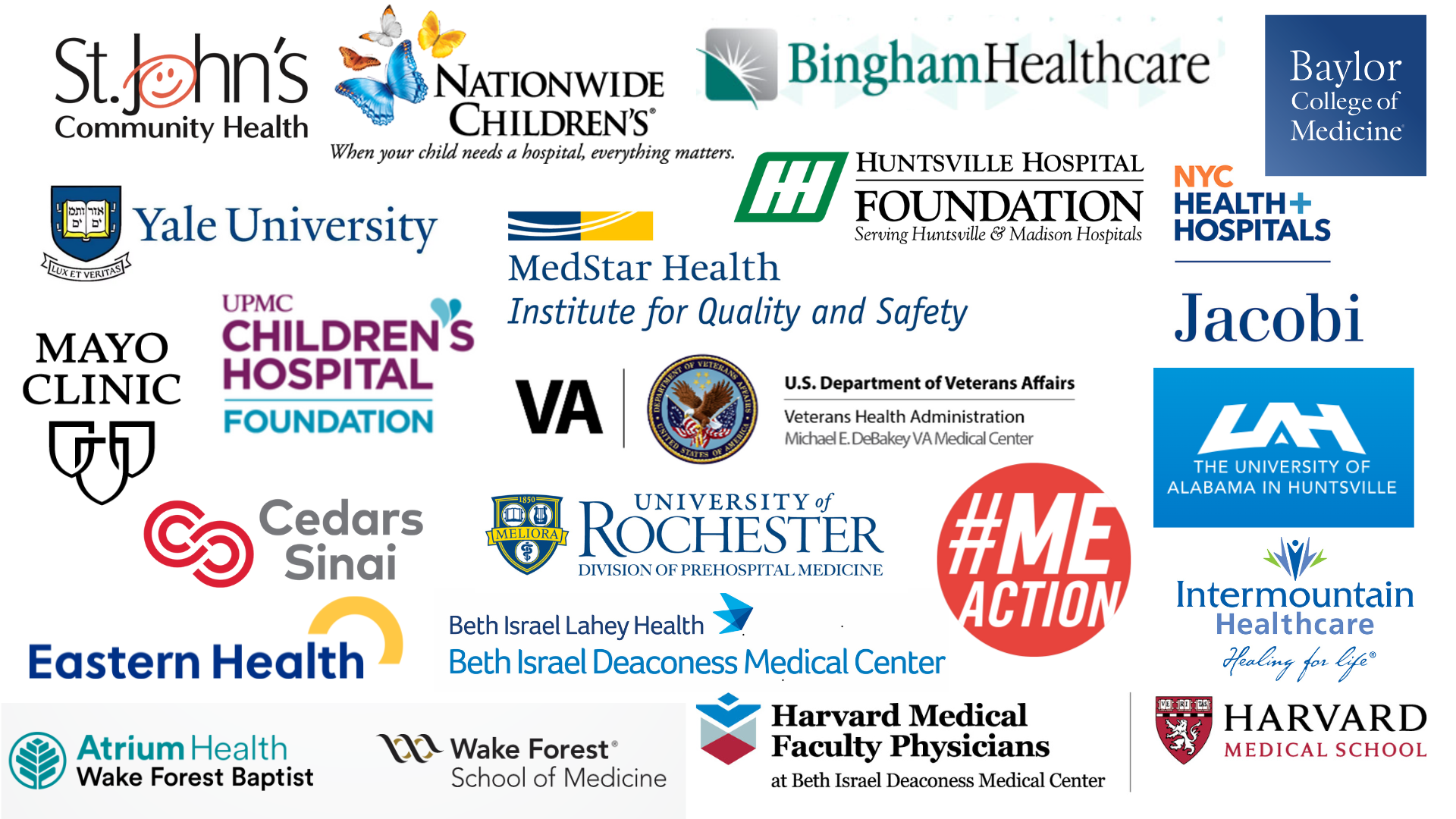ALPHARETTA, Ga., Sept. 20, 2022 -- The Society to Improve Diagnosis in Medicine (SIDM) is issuing the third grant round, totaling $3 million over three years, as part of the organization's DxQI Seed Grant Program. 19 organizations will receive awards up to $50,000 to test interventions to improve the quality, accuracy, and timeliness of diagnoses.
Despite the considerable commitment and expertise of all healthcare team members, delayed or inaccurate diagnoses are happening to millions of patients each year. It is estimated that 12 million adults in the United States experience a diagnostic error every year in outpatient settings alone. Diagnosis failures result in as many as 80,000 premature deaths every year in U.S. hospitals.
"Inaccurate or delayed diagnoses are the most common, catastrophic, and costly of all medical errors," said Jennie Ward-Robinson, PhD, Chief Executive Officer, SIDM. "The DxQI Seed Grant Program is designed to stimulate innovation in the field of diagnostic quality, an area where practice improvement activity is lagging. Through engaging health professionals and patients in creating, developing and testing promising interventions, the program unleashes the ingenuity of the healthcare community and directs that energy to addressing this issue."

Grantees selected focused on developing interventions to reduce diagnostic errors in three specific disease categories—cancers, vascular events, and infections—which account for most inaccurate or delayed diagnoses that result in serious harm or death according to a study published in Diagnosis. Many grantees also included a focus on improving diagnostic quality outcomes related to health disparities associated with age, race, gender, or other social determinants of health. Through support from The John A. Hartford Foundation, the program also includes an Age-Friendly Care DxQI Seed Grant awardee who will implement a project to improve diagnostic quality and safety for older adults.
Ultimately, the program will help clinicians, hospitals, and health systems take specific steps to improve diagnostic quality and safety by building an evidence base of effective interventions. Once tested, SIDM will create a clearinghouse of the interventions and be a catalyst for the adoption of effective practices by other organizations across the country.
The DxQI grants align with SIDM's support for an inclusive approach to reducing diagnostic errors where patients and frontline health professionals engage in developing and testing approaches to improve diagnostic quality and safety.
"A diagnostic error isn't just about the clinician—it's about the complete care delivery process and includes all members of the healthcare team, including patients, which is why we sought to award grantees who recognize all of these important voices," said Doug Salvador, MD, MPH, Chief Quality Officer at Baystate Health and Chair of the DxQI Seed Grant Review Committee. "Solutions to diagnostic questions are important now more than ever. COVID-19 put a spotlight on getting the diagnosis right as quickly as possible and the consequences of failure to the patient, their families, and our society as a whole."
Here are six of the 19 grantees awarded in this round:
- Baylor College of Medicine – Anemia in Post-Menarchal Pediatric Patients in the Emergency Department: Addressing Inequities in Evaluation and Management
- Beth Israel Deaconess Medical Center – Improvement in Quality and Equity of Iron Deficiency Anemia Evaluation Using a Standardized Clinical Registry
- Bingham Memorial Hospital – Improving Cancer Diagnosis and Care in Southeast Idaho
- Huntsville Hospital Foundation – Improving Racial Equities in Lung Cancer Outcomes in the Greater Huntsville African American Community
- New York City Health and Hospitals, Jacobi Medical Center – Using a Pediatric Resident Peer Network to Implement an "Improve Diagnosis Change Package" at Jacobi Medical Center, a Large NYC Municipal Safety-Net Hospital
- Yale University School of Medicine – PE SafetyNet: An Artificial Intelligence-Enhanced Emergency Department Pulmonary Embolism Safety Net Focused on Reducing Diagnostic Delay
This year's Age-Friendly DxQI Seed Grant awardee is:
- University of Rochester Medical Center – Improving EMS Assessment of Geriatric Fall Patients: An Opportunity for Improving Diagnosis in the Prehospital Care Setting
To review all 19 grantees and read the full description of each project.
The DxQI grantees will identify and implement small, practical tests of change, then begin to build evidence supporting interventions that could reduce harm due to diagnostic error if replicated and spread across other hospitals and health systems.
The DxQI Seed Grant Program is an initiative of the Society to Improve Diagnosis in Medicine with support from the Gordon and Betty Moore Foundation.
SIDM plans to open the next grant application period in November 2022. Organizations can learn more at www.improvediagnosis.org/dxqi/.
The Society to Improve Diagnosis in Medicine catalyzes and leads change to improve diagnosis and eliminate harm from diagnostic error. We work in partnership with patients, their families, the healthcare community, and every interested stakeholder. SIDM is the only organization focused solely on the problem of diagnostic error and improving the accuracy and timeliness of diagnosis. In 2015, SIDM established the Coalition to Improve Diagnosis to increase awareness and actions that improve diagnosis. Members of the Coalition represent hundreds of thousands of healthcare providers and patients—and the leading health organizations and government agencies involved in patient care. Visit www.ImproveDiagnosis.org to learn more.
Contact
Media Inquiries:
Sophie Gibson, VIVO360, Inc., 404 784 4688, 345023@email4pr.com
SOURCE The Society to Improve Diagnosis in Medicine
